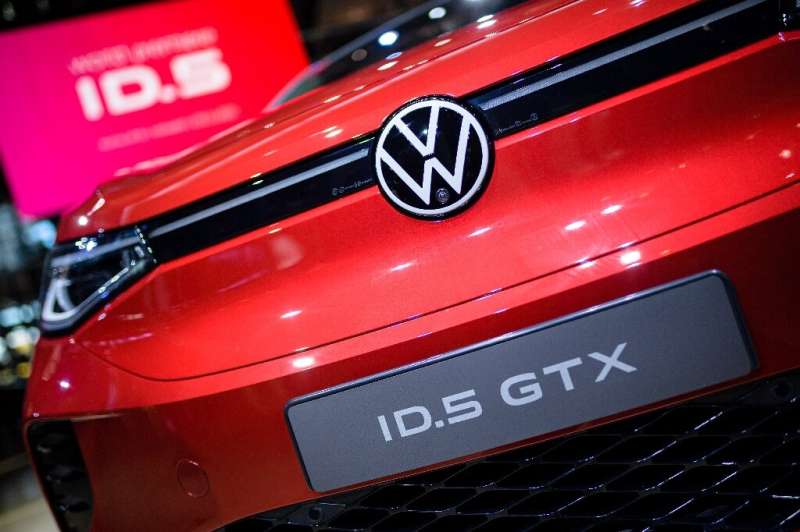Electric cars like the ID.5 are Volkswagen's future as the German carmaker announced it was dedicating even more of its investment into electrifying its models.
German auto giant Volkswagen said on Thursday that it would bulk up its investment in electric vehicles and digitalisation to 89 billion euros ($101 billion) over the next five years.
The 12-brand group will dedicate 56 percent of its 159 billion euros of investment to developing the cars of the future, up from 50 percent, and estimates that "one in four cars sold in 2026 will have a battery-electric motor".
"We are in the middle of the biggest transformation in the history of Volkswagen," chief executive Herbert Diess told reporters after a meeting of the group's supervisory board to agree the investment plan.
Under pressure to reduce the sector's role in climate change, major automakers around the world have announced targets to gradually phase out fossil fuel-powered vehicles.
Germany's newly minted coalition under the leadership of Chancellor Olaf Scholz is aiming to speed up the move towards electric cars with a target to have 15 million on the road in the country by 2030.
In 2020, Volkswagen announced 73 billion euros of investment in the vehicles of tomorrow for the period up to 2024.
The need to raise the commitment through 2025 was "mainly due to the accelerated ramp-up of e-mobility as part of the green deal" agreed by the European Union, the group said in a statement.
The heightened investment will go into the opening of six new battery factories through partnerships with other companies over the coming years.
The allocation for electric cars increased by 50 percent to 52 billion euros, while the sums set aside for hybrid "transition technology" went down by 30 percent to eight billion euros.
The digitalisation of its vehicles and the group's organisation will cost a further 30 billion euros.
Volkswagen said that its flagship plant in Wolfsburg, Germany, would begin full production of electric vehicles in 2024, earlier than first planned, in addition to the new mass-market electric vehicle expected to roll off the factory line in 2026.
Boardroom changes
The announcement came amid a bitter dispute between Diess and employee representatives, who took issue with the CEO's management style and plans for the transformation of the group.
At a supervisory board meeting in September, the CEO is said to have raised the possibility that up to 30,000 jobs could be lost at the plant in Wolfsburg if Volkswagen did not successfully manage the transition to electric vehicles.
Despite suggestions he could be made to stand down as CEO, Diess will stay on, while handing over responsibility for the Chinese market to Ralf Brandstaetter, currently the boss of the VW brand, who will also ascend to the board of directors from next year.
At the same time, Diess, 63, who has been publicly complimentary about electric vehicle pioneer and competitor Tesla, will take charge of Volkswagen's software arm Cariad.
The addition of other new names to the line up of directors meant Volkswagen had "even more clout to successfully tackle the strategic tasks of the years ahead", supervisory board chairman Hans Dieter Poetsch said in a statement.
Diess told reporters that he "never lost motivation" to continue as CEO despite the conflict.
© 2021 AFP
























